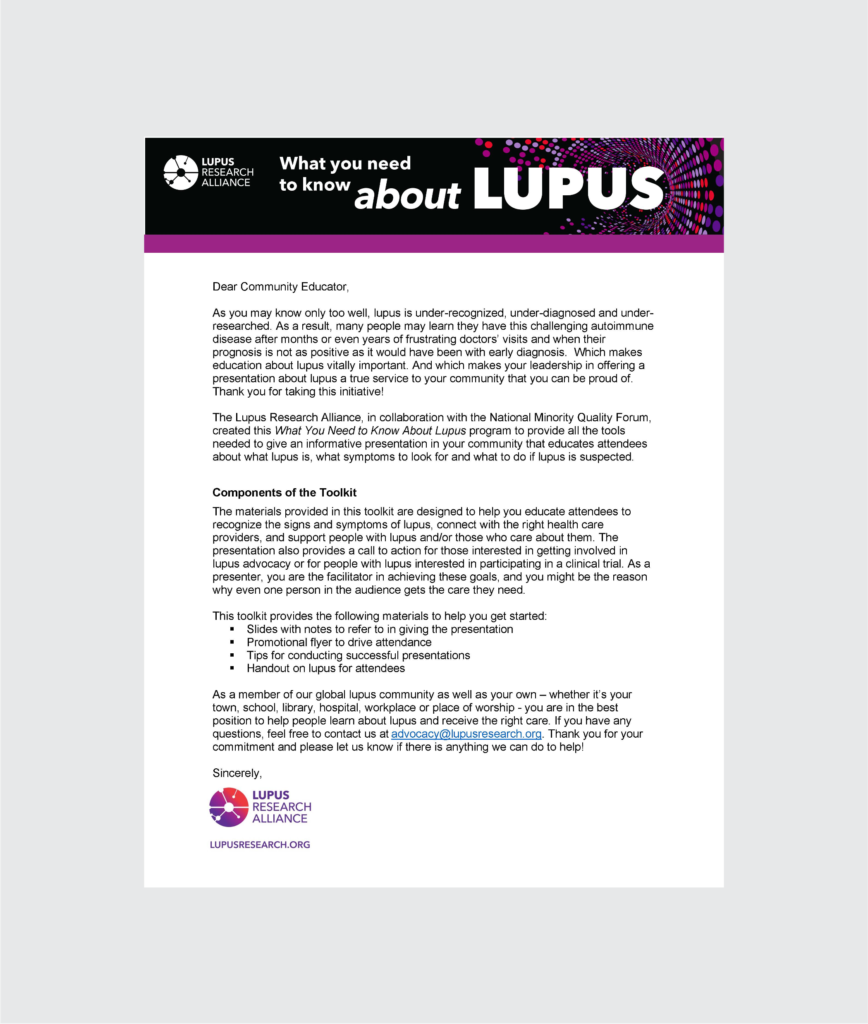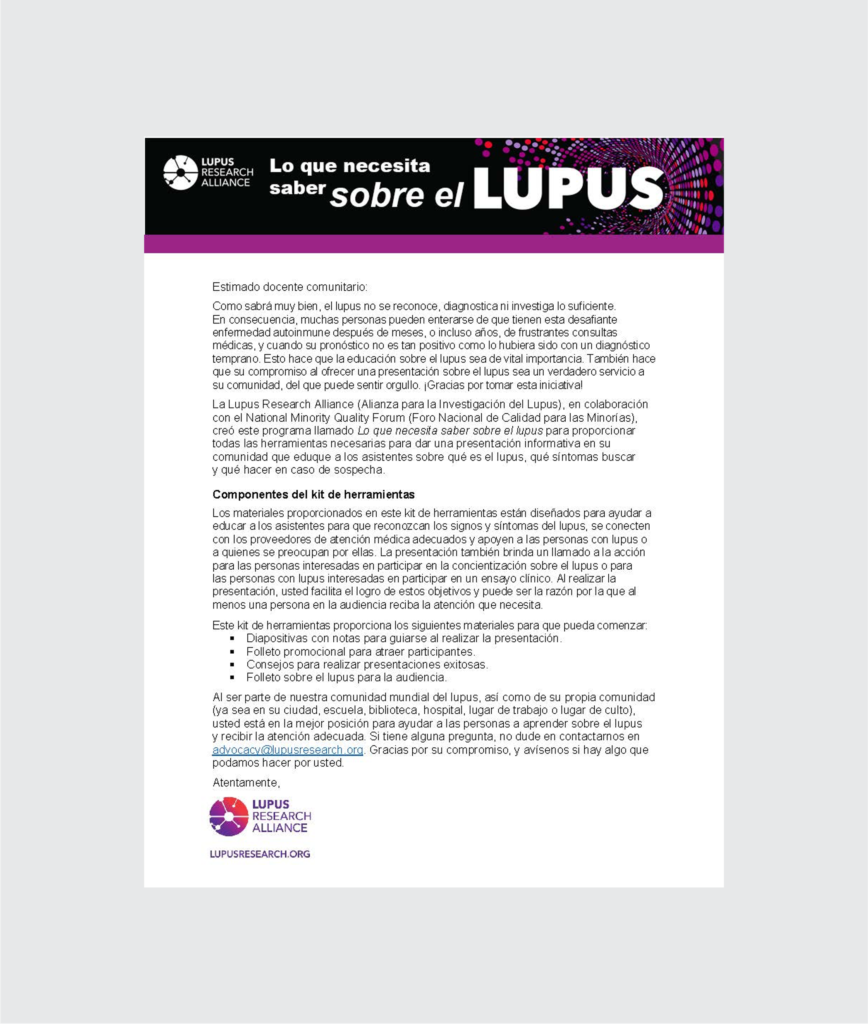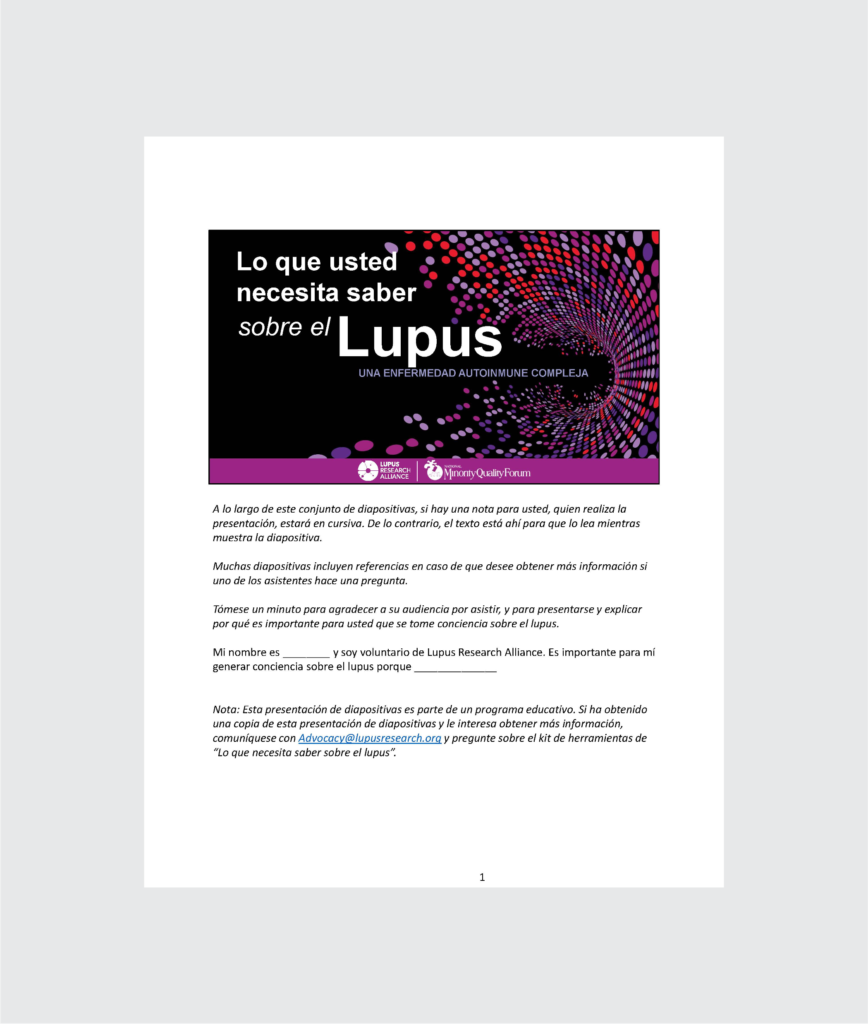You can make a difference in educating the public about lupus. The Lupus Research Alliance has developed the below materials that you can share with others to help educate your community about lupus.
Core Resources:
What You Need to Know About Lupus and Clinical Research (PDF)
“What You Need to Know About Lupus” Presentation and Materials
The Lupus Research Alliance also developed the below presentation and materials in consultation with the National Minority Quality Forum, a non-profit charged with helping to “eliminate the disproportionate burden of premature death and preventable illness for racial and ethnic minorities and other special populations.
The information provided in the presentation and materials will help individuals recognize the signs and symptoms of lupus, encourage them to connect with health care providers who are knowledgeable about lupus, encourage them to connect with health care providers who are knowledgeable about lupus, educate about clinical research, and support individuals to care for themselves or a loved one.
You can give the presentation yourself or use the below video, also available on YouTube, recorded by a person with lupus. educate about clinical research, and support individuals to care for themselves or a loved one.
English



LRA Presentation What You Need To Know About Lupus with Speaker Notes
-
Prerecorded Presentation Video


